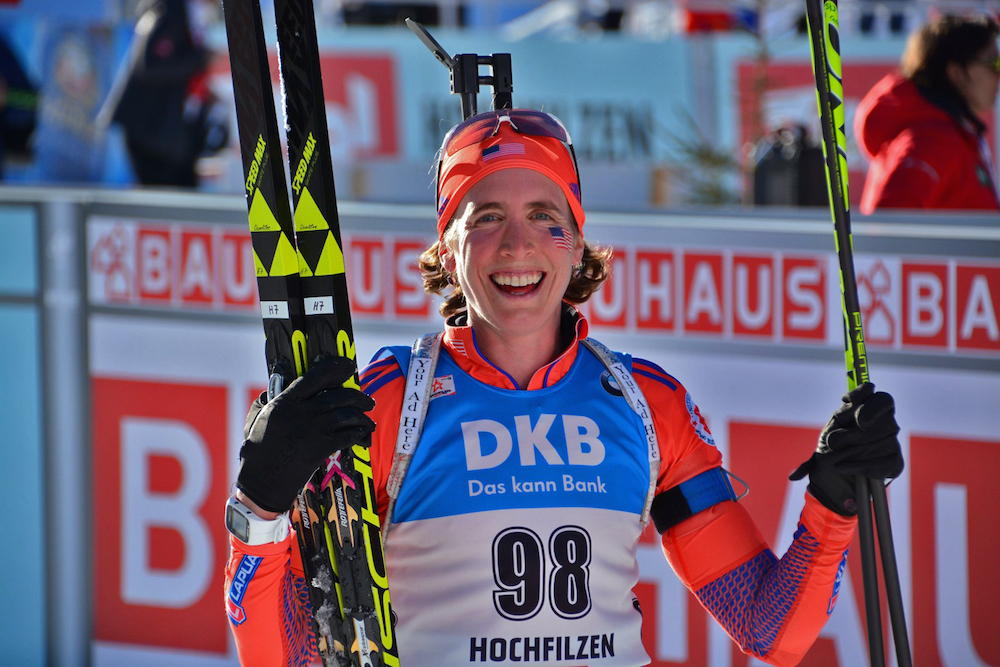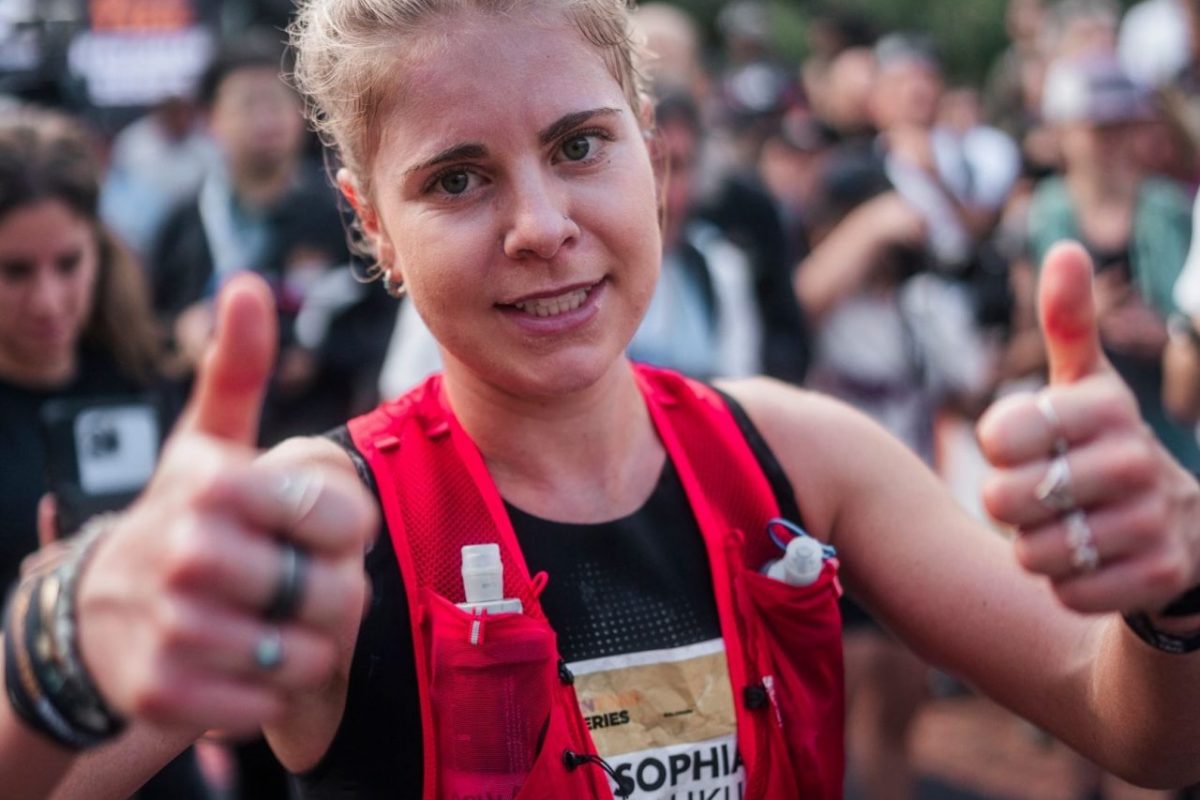
Stay tuned for further reporting from the women’s 15 k individual race, to be posted later today.
HOCHFILZEN, Austria—Sixth place? Not a bad way to turn things around halfway through a week-and-a-half long World Championships.
After all, Susan Dunklee didn’t have the start she wanted at World Championships, finishing in the mid-20’s in the sprint and the pursuit. Not bad results exactly, but for the most successful U.S. woman in the history of the sport, they left something to be desired.
Yet even through those races, Dunklee knew that there wasn’t anything wrong with her racing or her biathlon process. In some ways, the pair of racing experiences reinforced her resolve.
“Honestly, I think after having the first couple races done I just started feeling a little bit more relaxed,” Dunklee said. “Okay, so I don’t have to have a good result when I show up. I just have to do my job, and I don’t have control over what the results are going to be, I can only control what I am doing in the moment. And I did that those early races. It didn’t go as well as I wanted, but it was good work and I have to accept that.”
Come Wednesday, and the 15 k individual, she was ready to do more good work and reap the rewards.
The unique race format, where missed shots accrue a one-minute time penalty rather than a trip to the penalty loop, has provided Dunklee some of her best Championships results, including fifth place in Ruhpolding in 2012. But paradoxically, it has been her worst discipline this season: no better finish than 71st this season.
“I think it took the pressure off,” Dunklee mused. “I knew I didn’t have to do a lot to beat that.”
The monkey is now off her back. With just two penalties, Dunklee finished sixth today, 2:06.8 behind German winner Laura Dahlmeier, who had one penalty.
“It was a great comeback,” U.S. Biathlon Association Chief of Sport Bernd Eisenbichler said. “I think that with the two misses today she can be satisfied. There’s really high pressure on her, she really wants to be up there, and she belongs up there, and I think today she proved that.”
“I do a lot of race visualization in training, and today I just tried to pretend I was doing a race visualization,” Dunklee said.
Like many of the other top women, Dunklee picked the last seed group. With constant sun in Sudtirol and the weather in the stadium reaching the mid-40’s (Fahrenheit), much of the course was getting slow. But late in the day when sections of the trail were shaded, things began to speed up.
Dunklee said it had been the right call.
“There was a little bit more shade, and the shade was fastest, so that was helpful,” she said. “It was a little bit deeper [in some places], but I think it was beneficial to have the shade and that outweighed it.”
Starting nearly last – 98 out of 99 starters – she had a strange race-day experience.
“A lot of sitting around beforehand,” she said. “I am not used to that… I felt like the steam of energy in the stadium had kind of died down a little bit by the time I started.”
It also meant that when she missed one shot in the very first stage, she was knocked way back in the standings – to 38th. But cleaning the next two stages brought her back up and by the time she left the range the third time, she was in podium position.
It was not to be, though, as Dunklee missed a shot in the last standing stage.
“Sometimes you can feel it, sometimes you can’t,” Dunklee said. “I didn’t feel any of the misses today, they felt like good shots. I feel good about what I did.”
Dunklee got the details, though, clocking in the fourth-fastest shooting time and seventh-fastest ski time.
“The [skiing] shape is on a higher level now than we saw in January, so that is good to see,” Eisenbichler said.
The result should qualify her for the 2018 Olympic Games, and she will join teammate Lowell Bailey to make the very first pair of athletes named to the U.S. Olympic Team. U.S. Biathlon has a criteria that any athlete with a top-six World Championships result in the prior season is automatically selected. That’s never applied to more than one athlete before, and many years there are no such performances.
Dunklee says that such a system, which allows top athletes to qualify a whole year ahead of time, makes sense.
“It takes a lot of pressure off, and allows you to just focus on your training,” Dunklee said. “If you have to try out and qualify extra you have to taper a little bit for those qualification races, and I have the luxury of being able to just train through and make my peak ready for the Olympics… I think it’s good for us.”
And that gives the U.S. three top-six finishes in five days at World Championships, easily a best-ever team tally.
“Now we are hungry for even more, that’s for sure,” Eisenbichler said. “We still have the mass start and I think with that skiing shape and that shooting we can go for even more. That’s the goal for now.”
-Harald Zimmer contributed
Chelsea Little
Chelsea Little is FasterSkier's Editor-At-Large. A former racer at Ford Sayre, Dartmouth College and the Craftsbury Green Racing Project, she is a PhD candidate in aquatic ecology in the @Altermatt_lab at Eawag, the Swiss Federal Institute of Aquatic Science and Technology in Zurich, Switzerland. You can follow her on twitter @ChelskiLittle.



